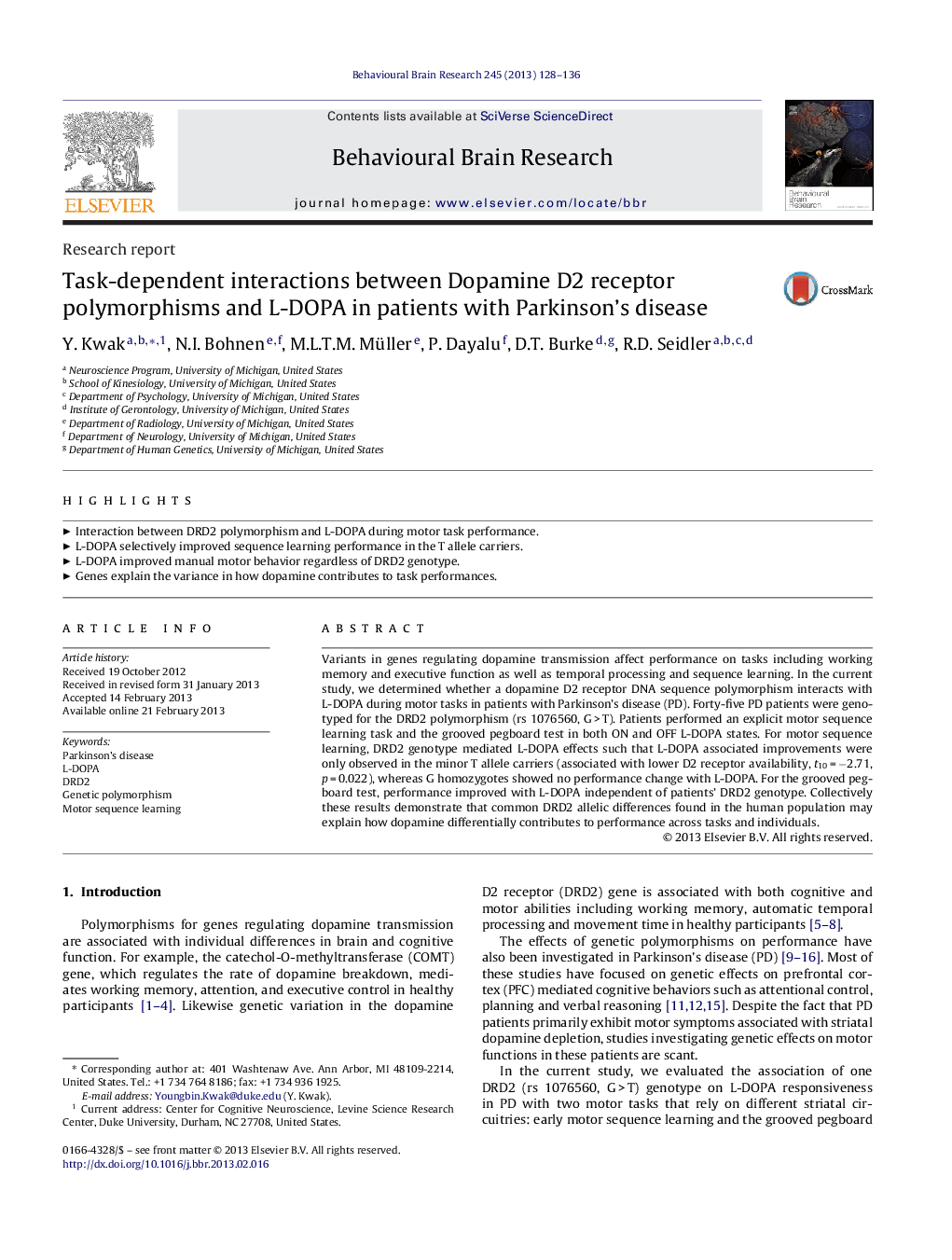| Article ID | Journal | Published Year | Pages | File Type |
|---|---|---|---|---|
| 4312838 | Behavioural Brain Research | 2013 | 9 Pages |
Variants in genes regulating dopamine transmission affect performance on tasks including working memory and executive function as well as temporal processing and sequence learning. In the current study, we determined whether a dopamine D2 receptor DNA sequence polymorphism interacts with L-DOPA during motor tasks in patients with Parkinson's disease (PD). Forty-five PD patients were genotyped for the DRD2 polymorphism (rs 1076560, G > T). Patients performed an explicit motor sequence learning task and the grooved pegboard test in both ON and OFF L-DOPA states. For motor sequence learning, DRD2 genotype mediated L-DOPA effects such that L-DOPA associated improvements were only observed in the minor T allele carriers (associated with lower D2 receptor availability, t10 = −2.71, p = 0.022), whereas G homozygotes showed no performance change with L-DOPA. For the grooved pegboard test, performance improved with L-DOPA independent of patients’ DRD2 genotype. Collectively these results demonstrate that common DRD2 allelic differences found in the human population may explain how dopamine differentially contributes to performance across tasks and individuals.
► Interaction between DRD2 polymorphism and L-DOPA during motor task performance. ► L-DOPA selectively improved sequence learning performance in the T allele carriers. ► L-DOPA improved manual motor behavior regardless of DRD2 genotype. ► Genes explain the variance in how dopamine contributes to task performances.
